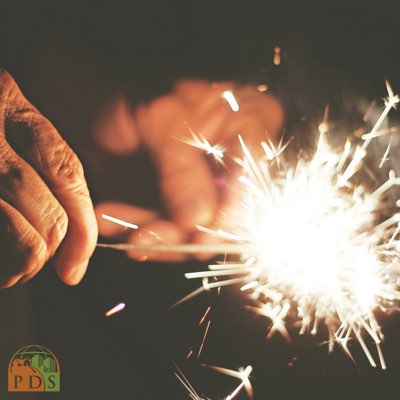
Legal Fireworks in Arizona: A Quick Guide
Hide your dogs (and have a safety talk with your kids) the summer fireworks season is here. From May 20 to July 6 fireworks may be purchased legally in Arizona. In the winter, you can buy fireworks from Dec. 10 to Jan. 3. They can be set off from June 24 to July 6 in summer and in the winter from Dec. 24 to Jan. 3.
Of course, not all fireworks are legal, and even the legal types pose real risks of fire, burns, and other injuries. Here’s a rundown of the legal guidelines and safety tips for fireworks festivities in Arizona:
Several kinds of fireworks are legal to use in Arizona, including cone and cylindrical fountains, wheels, ground spinners, illuminating torches, ground sparkling devices and handheld sparklers.
Fountain-style fireworks sit on the ground and shoot sprays of colored sparks into the air directly above them. Torches and ground sparklers typically spout colored flames or sparks, similar to the fountains but on a smaller scale. Ground spinners whirl and scream – keep an eye on those and give them plenty of space before igniting.
Handheld sparklers, the thin silver sticks that emit bright sparks as they burn down from the end, are a staple firework. Don’t let that fool you though, sparklers do pose serious burn risks, especially for children, as the heated end can reach 1,800+ degrees. Children often burn their feet when they drop sparklers because they feel too hot (or scary) to hold. Closed toed shoes, pants, and close supervision will help prevent injury.
In Arizona, the general rule of thumb is that ground-based fireworks are permitted, while fireworks that detonate in the air are not. The Phoenix Fire Department has detailed fireworks information up on their site. Restricted fireworks include bottle rockets, Roman candles, sky rockets, firecrackers, single-tube devices with reports, re-loadable shell devices, and other aerials.
Bottle rockets and sky rockets are generally smaller aerials, usually attached to a stick that goes into the ground to point them into the air for launch. Roman candles are packaged in a long, handheld tube that fires a number of explosive colored projectiles from the end. The other types generally use re-loadable tubes to launch exploding shells into the air (the smaller scale version of what’s generally used for official fireworks shows).
Firecrackers are one exception to the “ground-based is ok” rule of thumb. Firecrackers usually look like the fireworks in old cartoons – small red cylinders, often linked together with a long fuse that burns through and explodes a larger series. They make a lot of noise, but they also cause quite a few burns and injuries every year (thus their outlaw status).
Top 10 Things You Really Shouldn’t Do With Fireworks:
- Don’t let kids play with fireworks. Firecrackers, rockets, Roman candles, and even sparklers are very dangerous. If you let children hold sparklers, keep them outside and held away from their faces, clothing, hair and other kids.
- Buy only legal fireworks – typically, if it’s being sold in a package or kit inside a grocery store it’s legal. Also, legal fireworks should have a label with the manufacturer’s name and directions. Illegal ones are often unlabeled. Store fireworks in a cool, dry place.
- Don’t try to make your own fireworks, or use store-bought fireworks in ways other than directed.
- Don’t use fireworks inside. Keep a bucket of water and a hose nearby in case of mishaps.
- Treat fireworks like weapons – don’t throw or point fireworks at someone, even as a quick joke. Keep a clear perimeter around the area fireworks are being used, and keep children out. Fireworks sometimes backfire or shoot off in the wrong direction.
- When lighting fireworks, don’t hold them in your hand or have any part of your body above them. Ideally, wear some kind of eye protection, and carry them in a box or container, not in your pocket.
- Don’t try to relight duds, and only light one firework at a time. Don’t light them inside of containers.
- Be aware of fire risks. Bushes, leaves, dry grass and other flammable substances (like your home) may be ignited by hot fireworks, even after they’ve been spent. Light fireworks on cement or rocks or another safe area.
- Leave the cleanup to the grownups and take care; some spent fireworks may still be ignited and can explode at any time.
- It’s best to drop fireworks in a bucket of water before throwing them in the trash.
- Consider the happiness of your pets. Dogs and cats have sensitive ears and are often frightened or stressed by Fourth of July festivities. Keep your pets indoors to reduce the risk of injury or runaways.
